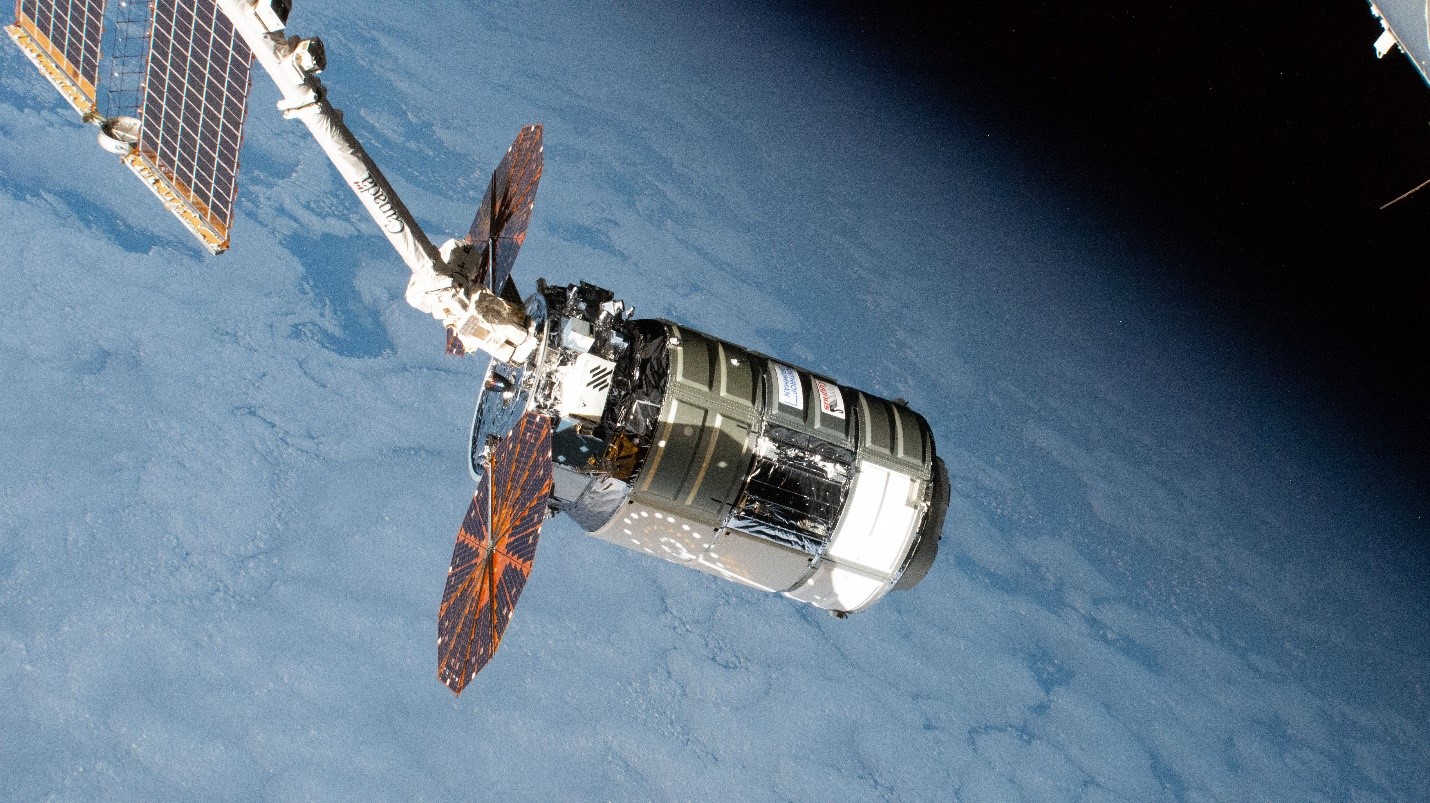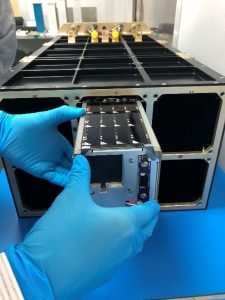
The sole CubeSat of the 33rd Educational Launch of Nanosatellites (ELaNa) mission was deployed into space at 6:50 p.m. EDT June 29 from Northrop Grumman’s Cygnus spacecraft hours following its departure from the International Space Station.
The CubeSat, Ionosphere-Thermosphere Scanning Photometer for Ion-Neutral Studies (IT-SPINS), was stowed within the Nanoracks CubeSat Deployer (eNRCSD) mounted on the exterior of the S.S. Katherine Johnson Cygnus spacecraft. Once the Cygnus departed the space station, it remained in orbit to deploy a total of 5 cube satellites, including IT-SPINS, which was deployed into a free-flying orbit at an altitude between 304 and 210 miles (490 and 500 kilometers) above Earth’s surface.

This mission aims to improve space weather forecasting related to dynamic processes in Earth’s ionosphere. The 3U CubeSat is equipped with a sensitive photometric instrument to remotely sense ultraviolet emissions produced when oxygen ions combine with electrons in the ionosphere. This investigation plans to reveal the dynamics of a physical boundary region in Earth’s ionosphere where the oxygen-dominated ionosphere becomes proton dominated with increasing altitude, in a layer known as the Topside Transition Region (TTR).
IT-SPINS launched aboard Northrop Grumman’s 15th NASA contracted cargo resupply mission to the International Space Station from Wallops Flight Facility in Virginia on February 20.
IT-SPINS is the twelfth in a series of CubeSats developed by Montana State University’s Space Science and Engineering Laboratory to advance CubeSat capabilities and conduct scientific investigations to answer question in the Geospace sciences. This mission is sponsored by the National Science Foundation, which has supported it during its development and is supporting the beginning of operations. IT-SPINS was selected by NASA’s CubeSat Launch Initiative (CSLI), which is managed by NASA’s Launch Services Program (LSP) based at Kennedy Space Center. Since its inception in 2010, CSLI has selected 202 CubeSat missions from 42 states, the District of Columbia, and Puerto Rico, and 119 CubeSat projects have launched into space through ELaNa rideshare opportunities.
Stay connected with the ELaNa mission on social media by following LSP at @NASA_LSP on Twitter and @NASALSP on Facebook.
